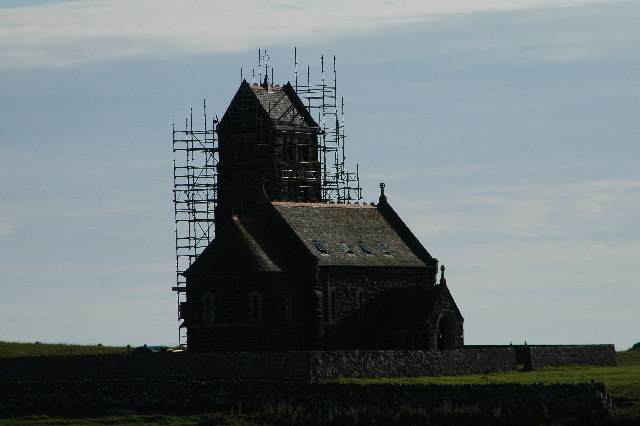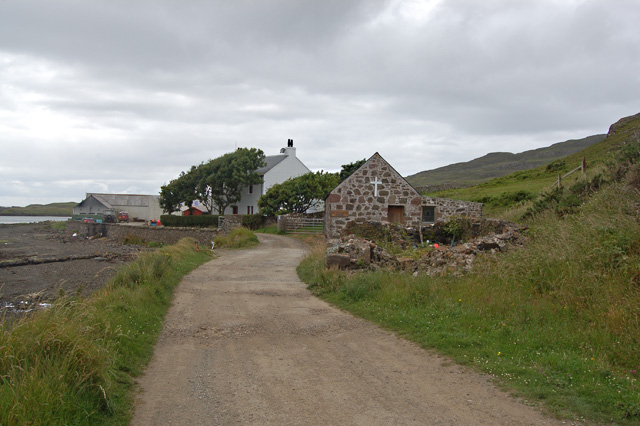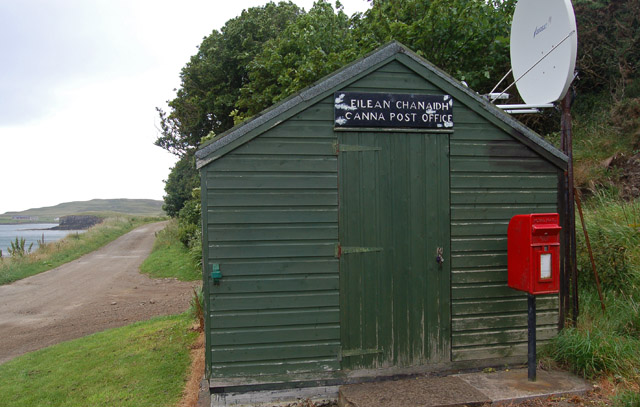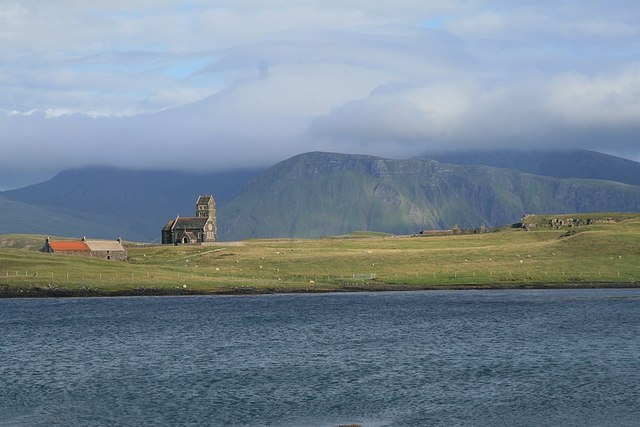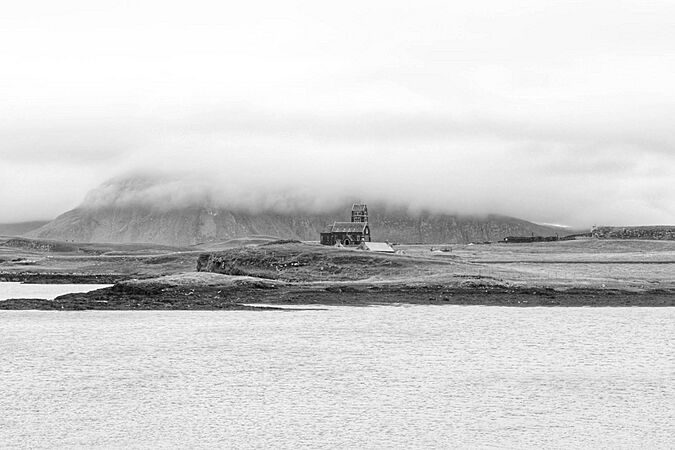St Edward's Church, Sanday facts for kids
Quick facts for kids St Edward's, Sanday |
|
|---|---|
| St Edward's Centre | |
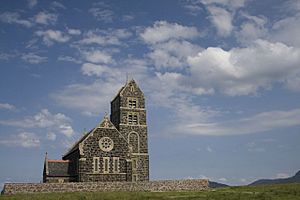
The building in 2013
|
|
| 57°03′12″N 6°29′41″W / 57.05334°N 6.49466°W | |
| Denomination | Roman Catholic |
| History | |
| Status | Deconsecrated |
| Architecture | |
| Functional status | Disused |
| Heritage designation | B |
| Designated | 29 May 1985 |
| Architect(s) | William Frame |
| Style | Neo Romanesque |
| Groundbreaking | 1886 |
| Completed | 1890 |
| Closed | 1963 |
| Specifications | |
| Materials | stone |
| Administration | |
| Diocese | Argyll & the Isles |
St Edward's Church on the small island of Sanday, Scotland, is a building that used to be a church. It is no longer used for church services. It is located in the Inner Hebrides, a group of islands off the west coast of Scotland.
Contents
A Special Gift to the Islands
St Edward's Church was a gift to the people of Sanday and Canna. It was built by Gwendolyn Fitzalan-Howard, who was the 3rd Marchioness of Bute. She wanted the church to be a memorial to her father, Edward Fitzalan-Howard, who had passed away in 1883.
Building the Church
The islands of Sanday and Canna were owned by the Thom family at that time. Even though the Thoms were not Catholic, they happily gave permission for the church to be built. Later, in 1912, the Thom family built a Protestant church called St Columba's Church on Canna.
The architect who designed St Edward's was William Frame. He was the main architect for the Bute family. The church was built between 1886 and 1890. Another person who worked on the church was Thomas Nicholls, a sculptor. Both of these men also worked on famous buildings in Cardiff, Wales. These buildings include the Pierhead Building and Castell Coch.
Before St Edward's was built, the islands already had a Catholic chapel. This older chapel was dedicated to St Columba and was built around 1770. After St Edward's Church was finished, the old St Columba's chapel was changed into a shop and a post office.
Why the Church Closed
Over the 20th century, the number of people living on Sanday and Canna decreased. Today, only about 30 people live on both islands combined. Because there were fewer church members, the building started to fall into disrepair.
The church officially closed in 1963. After it closed, church services moved back to the old St Columba's chapel on Canna. A new post office was built nearby to replace the one that had been in the old chapel. In 1985, St Edward's Church was given "Listed status," which means it is a building of special historical importance.
What Happened After Closure
After closing as a church, the building was used for different things. For a while, it was a place where people could stay, like a guesthouse.
In 2001, the church was turned into a center for studying the Gaelic language. This project cost a lot of money, about £860,000. However, this idea did not work out well. By 2010, reports said that the center had never actually been used. The building was once again suffering from water damage. By 2016, it was no longer in use.
Gallery
 | Chris Smalls |
 | Fred Hampton |
 | Ralph Abernathy |


